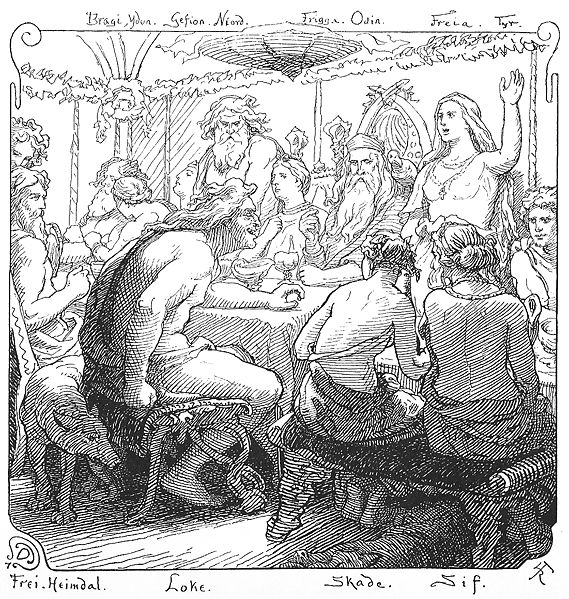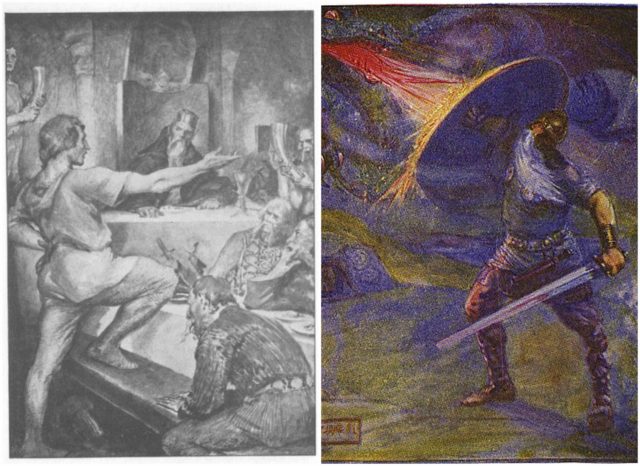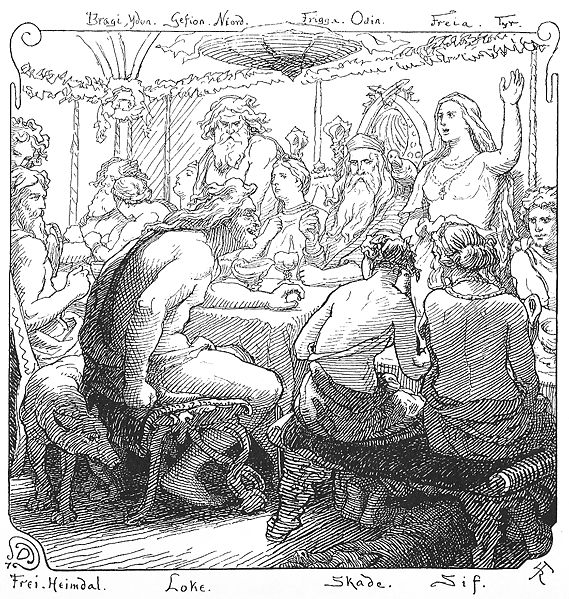Flyting is the name for a ritualistic, poetic insult exchange, and was mainly practiced between the 5th and 16th centuries. The word comes from the Old English word flītan, which means “quarrel” (which itself comes from the Old Norse word flyta meaning “provocation”). Similar to the modern “rap battle,” the ancient flyting exchanges would often become provocative, and include “accusations of cowardice or sexual perversion.”

Norse literature contains stories of the gods flyting. For example, in Lokasenna, the god Loki insults the other gods in the hall ofÆgir, and the poem Hárbarðsljóð in which Hárbarðr (generally considered to be Odin in disguise) engages in flyting with Thor.
The challenge of spontaneously composing a retort, in a verse-form common at the time, was a way to test intelligence and ingenuity. It was also used as a very ritualistic test – in Beowulf, Unferth starts a flyting with Beowulf as a sort of “interview,” setting out his claims of greatness. It was a product of a culture that valued cunning just as much as physical prowess, and some of the verse-forms (particular the skaldic forms in Viking culture) demanded a large vocabulary – one of many markers of intellect.

In Anglo-Saxon England, flyting would take place in a feasting hall. The winner would be decided by the reactions of those watching the exchange. The winner would drink a large cup of beer or mead in victory, then invite the loser to drink as well.
Flyting became public entertainment in Scotland in the 15th and 16th centuries where makars (a type of poet or bard) would engage in verbal contests of provocative, often sexual and scatological but highly poetic abuse. Flyting was permitted despite the fact that the penalty for profanities in public was a fine of 20 shillings (over £300 in 2016 prices) for a lord or a whipping for a servant. James IV and James V encouraged “court flyting” between poets for their entertainment and occasionally engaged with them. The Flyting of Dumbar and Kennedie records a contest between William Dunbar and Walter Kennedy in front of James IV, which includes the earliest recorded use of the word sh*t as a personal insult. In 1536 the poet Sir David Lyndsay composed a ribald 60 line flyte to James V.
Flytings appear in several of William Shakespeare’s plays. Margaret Galway analysed 13 comic flytings and several other ritual exchanges in the tragedies. Flytings also appear in the Nicholas Udall’s Ralph Roister Doister and John Still’s Gammer Gurton’s Needle from the same era.
